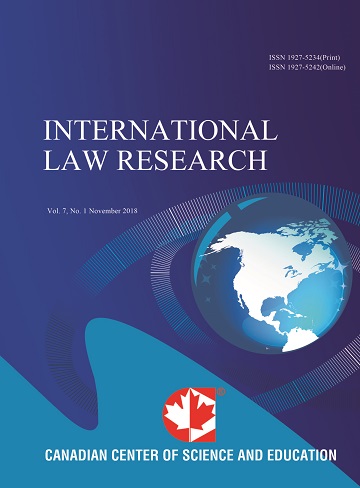Harassment in the Workplace: Context as Indicator
- Marié McGregor
Abstract
Harassment in South African workplaces, and worldwide, is commonly come across. This article will examine the role of context in establishing (racial) harassment in a particular case. This has not been done so thoroughly in any previous cases. South African anti-discrimination laws, as in other jurisprudences, prohibit unfair discrimination against employees on various grounds relating to human characteristics or so-called “prohibited grounds” such as race, sex, age, religion, culture and political opinion. In South Africa, harassment is viewed as a form of unfair discrimination. This article emphasises context as an important indicator of harassing conduct based on race, and by implication, for harassment and unfair discrimination on other grounds as well. It has importance for South Africa and other countries.
- Full Text:
 PDF
PDF
- DOI:10.5539/ilr.v3n1p38
Journal Metrics
h-index (2017): 2
i10-index (2017): 0
h5-index (2017): N/A
h5-median (2017): N/A
Index
- CNKI Scholar
- COPAC
- CrossRef
- DTU Library
- EuroPub Database
- Excellence in Research for Australia (ERA)
- Ghent University Library
- Google Scholar
- Harvard Library
- Infotrieve
- Jisc Library Hub Discover
- LOCKSS
- Open J-Gate
- PKP Open Archives Harvester
- Publons
- ROAD
- Scilit
- SHERPA/RoMEO
- Stanford Libraries
- Ulrich's
- UniCat
- Universe Digital Library
- UoS Library
- WorldCat
Contact
- Joseph TaiEditorial Assistant
- ilr@ccsenet.org
